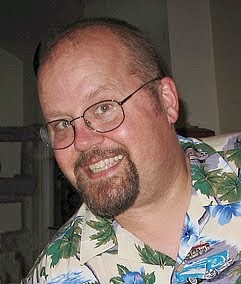A fever dream of overheated nostalgia
I've usually enjoyed Quentin
Tarantino's work, even when his later films started to extend their running
times beyond the limits of my patience and my bladder. Writers love to hear themselves talk, and I have always been willing to forgive such self-indulgence if the overall experience was
worth it. This has largely been the case
until "Once Upon a Time in Hollywood." This
9th Tarantino film is far too long for its own good, and I really felt it dragging
at multiple points throughout. Quentin! Cut it!
Let's MOVE ALONG, pardner!

I also had a problem going in
because I'm not enamored with either of the lead actors. For me, Brad Pitt's dramatic roles are all of
a very similar piece. I feel that they lack dimension and range. However, when Pitt takes on a comedic role, he
channels a childish, manic persona that is as delightful as it is whimsical. Leonardo DiCaprio gave similarly energized
performances as a younger man, but as an adult I find his acting to be theatrically
exaggerated. I feel like I'm watching
DiCaprio act instead of being the
character, as if he's self-conscious about his performance and winking at the
audience for approval.

Perhaps DiCaprio's recent Best Actor Oscar has
calmed him down a bit because in "Once Upon a Time in Hollywood" he turns in a fine performance as Rick Dalton,
a washed-up Western villain trying to resurrect his flagging career. Brad Pitt plays Cliff Booth, a quiet, veteran
stuntman who works solely for Dalton. Together, their
bromance provides an endearing and welcome balance to the usual Tinseltown
seediness through which both must navigate.
Dalton's self-doubt and desperation is well-done without
feeling pitiable, while Booth's streetwise urban cowboy is funny and witty
without seeming like a too-cool quip machine.

Additionally, because both characters are
fictional, there is more room for creative invention since the style of Dalton and Booth's story leans heavily into the ample
satirical possibilities of an industry pervasive with venality and treachery. Their symbiotic relationship and fluctuating
fortunes provide plenty of dramatic heft and interest to make the entire film
feel whole and satisfying. Unfortunately,
this makes the inclusion of the Sharon Tate and Manson family storylines feel largely
unnecessary.


While these three stories do
overlap at several points throughout the film, the Sharon Tate and Manson
family sequences don't mesh nearly as well mainly because they're too long. The
characters are hastily sketched and more crucially, their threads aren't strongly
woven around the struggles of Dalton and Booth. It
takes over two hours to get to the last act, and as the vast majority of that
time is still spent on Dalton and Booth's misadventures, this overshadows the other
two stories such that their intersection at the end feels coincidental rather than fateful.

I believe that this is
intentional, but it also has the effect of lessening the sense of importance in
the Sharon Tate and Manson family portions of the film, especially since you
can't change those stories because they're actually based on fact, right? Well, I can't say more except that while I
was quite grateful for the final "twist" feeling somewhat rewarding
despite the slog to get there, it was ultimately too little too late. I anticipated a horrifically gory and
unpleasant ending, and instead was given something slightly different. It was a nice surprise, but the prolonged
unwrapping was enervating to the point of actual boredom.



The production, costume and
set design are superlative and detailed without being distracting. The cinematography is also top-notch and
combined with the aforementioned practical effects, the film becomes a
sumptuous feast of the color-drenched landscape and intoxicating hippie culture
that was still exploding in late sixties Los Angeles. As usual,
Tarantino's musical choices are unconventional but still perfectly align with the moods
and themes of the individual scenes.
Quentin just needs an editor who will apply the same brutality to his extended running times as he does to the hyperkinetic violence which he adores.

















































